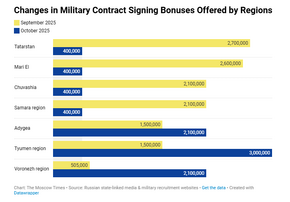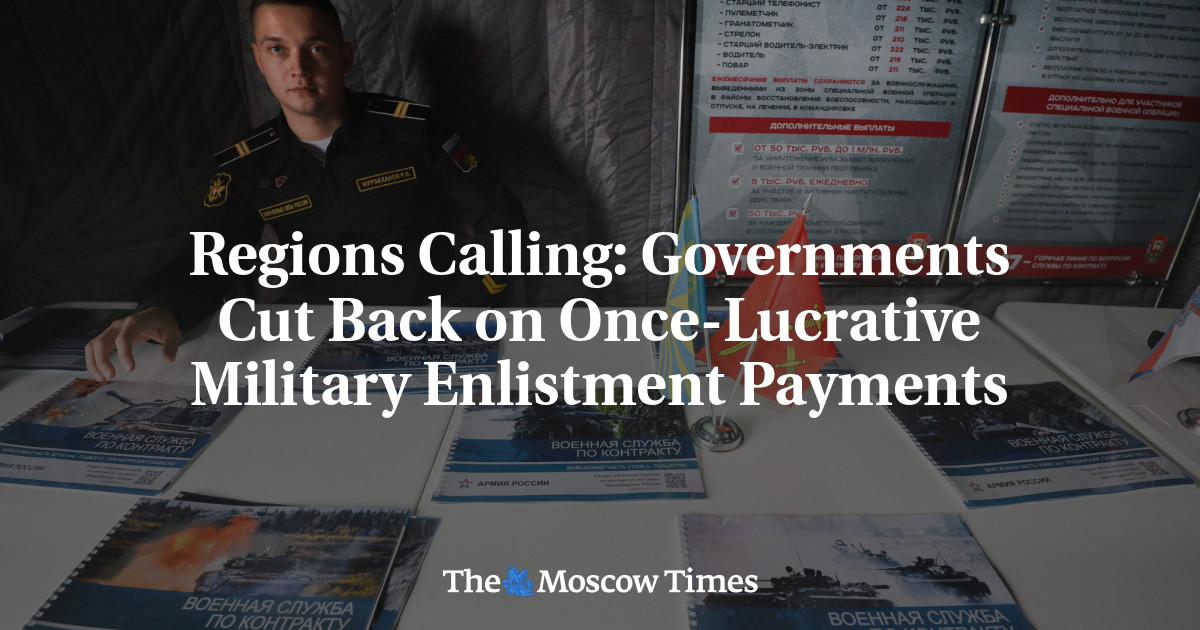Over the past three years, I have heard a few times that the economic picture was darkening in Russia and that sanctions were really starting to bite. I’m sure you could find instances of Russian elites sounding dire during that time. But the economy has defied people’s expectations, given the intensity of the sanctions and everything else. It may not be booming, but it hasn’t collapsed. So why are you confident that this time is different?
Let me step back a moment and look at some of the language that you were sort of drawing upon. You say the economy hasn’t collapsed. That’s absolutely right. But that’s not the kind of test that it’s fair to set for sanctions, or even the combination of sanctions and war. Economies almost never collapse under any circumstances.
Well, I guess I meant it hasn’t suffered a severe recession. There hasn’t been chaos in the streets.
I appreciate that, but one hears this word used quite a lot — that the economy hasn’t collapsed, and therefore sanctions aren’t working. And it’s a straw man. Smaller economies than Russia’s have been subject to such severe sanctions for longer. They don’t implode. And I think the reason people use this term, in particular in the context of Russia, is we have these memories of 1991, where things really did collapse. But that was a unique historical moment, which was a consequence of circumstances that will never recur, including an economic system that was historically out of time.
But why haven’t we had a severe recession? There’ve been two significant sources of growth since this combination of major war and major sanctions began. The first major source of growth was a huge external surplus. So Russia’s balance of payments shot up. That happened from mid-2022 onward, and it happened for two reasons. One was that energy prices went up, and the second was that sanctions suppressed imports. Sanctions did genuinely shock the Russian economy before it began to find ways to get around many of the export controls. But there was a period where the combination of more revenues for Russian oil, plus fewer hard currency outflows — because imports fell drastically — created this huge external surplus, and that buoyed the Russian economy. And then imports did gradually rise again, and energy prices began to fall.
The second big source of growth, which arrived in early 2023, was this
huge increase in military spending. And for a while that sustained things. It’s worth looking at the experience of other countries. Major wars are typically economic stimulants. The really interesting thing in that comparative perspective is how short lived the Russia boom has been — not that it happened, but that it is withering away manifestly. It’s not only that the Russian economy is
virtually stagnant now but that if you look within the economy, the non-militarized sector has stopped growing, and there’s a massive, ongoing transfer of resources to military-industrial production and huge payments needed by the Russian state to persuade its citizens to fight.
This is a point of fundamental significance: that Russia is doing everything it possibly can not to compel its citizens to fight. It’s exhorted them to fight, and in particular, it’s
paying them to fight. It’s using North Korean soldiers, Cuban soldiers, militaries from other parts of the world. But it is avoiding doing what is always done before, which is drawing upon either a large peasant serf army or a mass Soviet conscription system to fight. And that’s very expensive. Russia has to pay its soldiers as well as pay for matériel production for the war.
I could go on about some of the other distortions and problems that the Russian economy and financial system faces. To return to the core of your question, a series of phenomena now are converging in Russia’s political economy that we absolutely have not seen before: the highest real interest rates in the world; the fact that major nonmilitary enterprises now are starting to shed labor, moving to four day weeks; the fact that in some regions now pensioners, in order to combat inflation, are starting to be given a kind of ration card. They’re avoiding calling it a ration card, but that’s what it is. And so on. There really is a palpable sense that elites are worried again to a degree that we haven’t seen since the beginning of the war and that there are quite specific, quiet, discussions about escape routes, about the prospect of collapse and so on. The best economic minds in Russia are the most worried about this situation.


